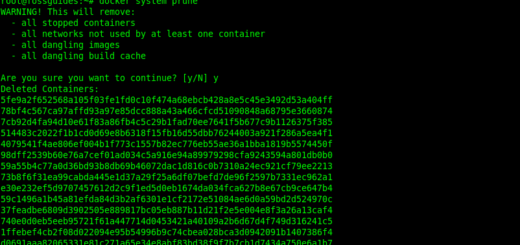Why is Linux Popularly Used as a Server Operating System?
Linux is extensively used to power servers in a variety of IT environments; from small home labs to data centers of varying sizes and capabilities and in the cloud. Several factors contribute to the popularity of Linux operating systems for server use. Linux operating systems are open-source and may be tailored to meet the unique requirements of any server environment.
Page Contents
This article discusses the key reasons why Linux is so popular as a server operating system. And they are as follows.
Linux is Open-Source
Because Linux is an open-source operating system, anyone can view and modify its source code. This allows server administrators to modify it to their unique needs and requirements, making it very adjustable and versatile.
Stability
The stability and reliability of Linux as a server operating system is one of its key benefits. Linux is renowned for its capacity to function for extended stretches of time without crashing or needing to be restarted. This is especially crucial for servers that must be accessible round-the-clock.
Security
Linux is renowned for having strong security measures. Due to Linux’s open-source nature, security professionals can easily review the code, find vulnerabilities, and quickly fix them. A built-in firewall and other security measures in Linux may also be modified to meet the demands of a specific server environment.
Flexibility
Another major benefit of using Linux as a server operating system is its flexibility. To meet the requirements of a certain application or server environment, Linux can be modified. Linux is a flexible option for server installs since it is also compatible with a variety of hardware.
Cost-effectiveness
Because Linux is free to download and use, it is an appealing option for businesses and organizations looking to save money on licensing fees and other costs associated with proprietary operating systems.
Subscription-based Linux Operating Systems
On the other hand, there are also other subscription-based Linux server distributions available, each with its own set of features and benefits. With a subscription-based Linux server distribution, you get the support of a vendor who is committed to maintaining and upgrading the distribution. This can give peace of mind and assist ensure the long-term viability of your server environments.
Furthermore, some subscription-based Linux server distributions include enterprise-level features such as clustering, high availability, and load balancing, which can be critical for organizations running mission-critical applications.
Compatibility
Last but not least, Linux is compatible with a wide range of hardware and software, allowing it to run on a number of server platforms and handle a wide range of applications and workloads.
Conclusion
Generally, Linux is a well-liked option for server installations because of its reliability, security, adaptability, and affordability. What do you think? Please use the comment section below to let us know what you think.



